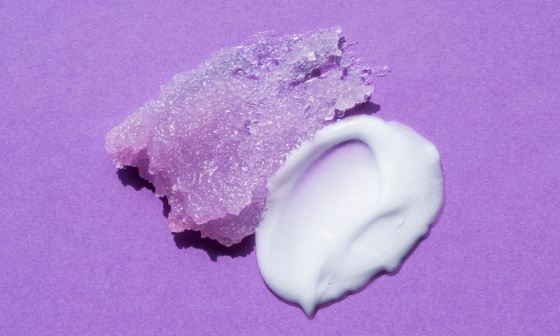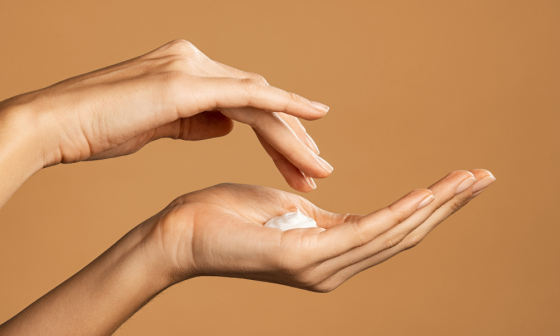Be warned—sensitive skin can be more complicated than you’d expect, and it’s different from normal skin in that even the mildest ingredients can cause redness, irritation, and breakouts. But that doesn’t mean you have to live with your sensitive skin being uncomfortable or embarrassing; there are plenty of skincare products made especially for sensitive skin that are gentle enough to use every day without drying out your complexion or causing negative reactions. Here are some of the best tips on how to find the right skincare routine for your sensitive skin needs.
Cleansing
Since most cleansers are too harsh on sensitive skin, opt for oil-based cleansers that won’t strip your skin of natural oils. Good options include coconut oil and pure jojoba oil. To use, massage a few drops into dry skin to remove impurities and makeup, then rinse with warm water. Oils do not foam like traditional soap-based cleansers, so cleanse your face in circular motions to help lift dirt from pores; once you have wiped away all makeup residue, allow oils to soak into your skin for a minute or two before rinsing completely. Sensitive skin is often prone to redness and irritation, so avoid products that contain alcohol or fragrance. Also steer clear of products containing artificial colours (especially if you suffer from rosacea) as they can cause irritation. Avoid hot water when cleansing—the steam can trigger facial swelling and inflammation. Instead, lukewarm water will be gentler on sensitive skin.
Moisturising
Humidifiers and steam showers can be helpful in hydrating your skin, but they’re not an everyday solution. The best way to moisturise sensitive skin is with gentle lotions that have been formulated especially for your needs. Look for products designed with ingredients like aloe vera and vitamin E, which help protect from environmental stressors without irritating your skin. If you’re prone to allergies or irritations, it might also be a good idea to opt for hypoallergenic facial cleansers and makeup. Products labelled non-comedogenic are less likely to clog pores and cause breakouts. And if you do experience redness or irritation after using a new product, stop using it immediately and check with your dermatologist before trying anything else. It’s important to remember that everyone has different skin types and sensitivities, so even though one person may find a certain product works wonders on their face, another person may end up with severe side effects from using it. Always test out new products by applying them to a small patch of skin behind your ear first. If there are no adverse reactions within 24 hours, then go ahead and use it as directed. Allergies are becoming more common, albeit a lanolin allergy is rare you may have some sensitivities to it. If you know that lanolin makes your skin itch or rash, avoid any beauty products containing it. Lanolin can also be found in some lip balms and skin moisturisers.
Exfoliating
To remove dead skin cells, exfoliate your face once or twice a week with a gentle and natural exfoliator or cleanser. Be gentle and avoid rubbing too hard—you don’t want to cause any redness or irritation. Wash well and then apply your daily moisturiser. This will ensure that all traces of dead skin are gone, and smooth new layers have formed underneath. If your skin seems to be out of control and you can’t easily identify the irritant, consider contacting a dermatologist. They can tell you if there is something in your current skincare routine that may be irritating your skin. You should also talk to them about whether they think a prescription medication will help improve things further if it seems out of control.
Sun protection
Choose a good, broad-spectrum sunscreen that offers SPF 30 or higher. There are sunscreens specially designed for sensitive skin like CeraVe Facial Moisturising Lotion Sunscreen SPF 50, which contains ceramides to soothe your skin and prevent moisture loss. Apply it at least 15 minutes before going outside. If you’re spending time in direct sunlight, be sure to reapply every two hours! Look for organic ingredients like titanium dioxide and zinc oxide on labels; these minerals protect against both UVA and UVB rays while being less likely to cause irritation than other chemical sunscreens. Personally, I use a chemical free and organic sunscreen when I do!
At-home remedies
If you’re dealing with skin issues such as acne, rosacea, or eczema, one of your best weapons is over-the-counter hydrocortisone cream. This topical cream works to reduce swelling and itching from flare-ups. However, these are not necessarily the first port of call as there are several home remedies that can help relieve symptoms associated with sensitive skin. These include baking soda, olive oil, tea tree oil, aloe vera gel and milk or yogurt. Be sure to do some research before trying any new remedy so you know what ingredients may cause additional irritation. Additionally, it’s important to make sure all products used on sensitive skin are free of fragrance and other harsh chemicals.






